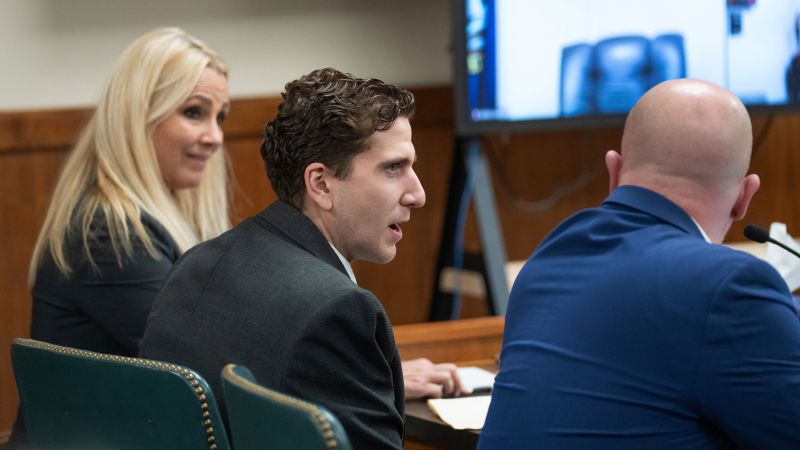Steve Goncalves was taken aback over the weekend upon learning that prosecutors in Moscow, Idaho, had reached a plea deal with Bryan Kohberger, the man accused of the 2022 stabbing deaths of his daughter, Kaylee, and three other University of Idaho students. This development came just days after Goncalves and several victims’ families expressed their opposition to any plea deal, advocating instead for the pursuit of the death penalty in Kohberger’s upcoming murder trial.
Goncalves recounted a Friday afternoon call with prosecutors where he made it clear that a plea deal was not acceptable. “We don’t want to deal. We’re not interested in that. We didn’t wait two and a half years for this,” he told them. However, just two days later, he received an email notifying him that a deal had been reached, leaving him feeling blindsided.
The Plea Deal’s Controversial Nature
According to sources, the plea deal was initiated by Kohberger’s attorneys following a series of setbacks in their legal strategy. The agreement would allow Kohberger to plead guilty to all four counts of murder in exchange for the death penalty being dropped. This decision has been met with mixed reactions from the victims’ families. Goncalves and his family criticized the deal as “hurried” and “secretive,” arguing that victims’ families should have been consulted on its terms.
Jeff Kernodle, Xana’s father, also expressed disappointment, viewing the plea as a missed opportunity to set a precedent for accountability in such cases. “It could have sent a message to others that these kinds of horrific crimes carry real consequences,” Kernodle stated.
In contrast, families of the other two victims have expressed support for the plea deal. Ben Mogen, father of Madison, chose acceptance, noting that the agreement would help his family avoid the trauma of a trial. Ethan’s mother, Stacy Chapin, confirmed their support for the plea bargain, stating they would be present in court.
Judicial Approval and Legal Implications
The plea deal is not yet finalized and requires approval from State District Judge Steven Hippler. A hearing is scheduled for 11 a.m. Wednesday, during which the plea agreement will be discussed. Legal experts suggest that the judge could require Kohberger to confess to details of the crime, a move that would provide closure to the victims’ families.
Plea negotiations are typically conducted in private, and University of Idaho associate law professor Samuel Newton explained that details are unlikely to emerge unless one party decides to speak out. Plea deals often involve incentives for defendants, such as reduced sentences, and can be influenced by the high costs and lengthy appeals associated with death penalty cases.
“The family is looking at … decades of legal proceedings in a death penalty case, versus if he takes life without parole, it’s done and the family gets that degree of closure,” Newton said.
Families Seek Answers and Accountability
Both Goncalves and Kernodle have voiced their desire for Kohberger to provide specific details about the crime, which could have been revealed during a trial. These details remain crucial in understanding the motive and execution of the stabbings. Goncalves hopes that Judge Hippler will require Kohberger to make statements in court, which would also counter claims of innocence from Kohberger’s supporters.
Kernodle echoed these sentiments, expressing disappointment that the plea deal does not include conditions for Kohberger to explain his actions. “It’s incredibly hard to accept that a trial won’t be happening,” he said.
Additionally, Goncalves believes the plea deal should prevent Kohberger from profiting from recounting his story in the future.
The Possibility of an Alford Plea
There remains a possibility that Kohberger could maintain his innocence while accepting the plea deal through an Alford plea. This legal option allows a defendant to plead guilty while asserting their innocence, stemming from a 1970 Supreme Court case. Newton noted that while an Alford plea results in the same legal outcome as a guilty plea, it allows the defendant to avoid admitting guilt.
“The benefit of the Alford plea is for a defendant who feels that they’re innocent but wants to take the deal,” Newton said.
However, Newton expressed skepticism that prosecutors would have agreed to a plea deal without assurances that Kohberger would accept responsibility for the killings, making the likelihood of an Alford plea uncertain.
As the case progresses, all eyes will be on the courtroom this Wednesday, where the future of the plea deal and the quest for justice for the victims’ families will be at the forefront.
